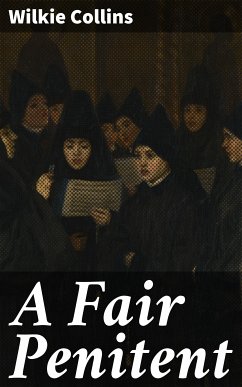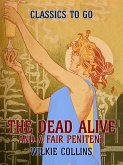In "A Fair Penitent," Wilkie Collins explores the intricacies of guilt, obsession, and moral ambiguity through the compelling narrative of a forsaken love affair. Written in Collins's signature style, characterized by vivid characterizations and psychological depth, the novella intricately weaves themes of social constraint and personal desire within the Victorian literary context. This work stands alongside Collins's other masterpieces, such as "The Woman in White," as an early example of psychological realism, showcasing his prowess in portraying the darker aspects of human nature and societal expectations. Wilkie Collins, a contemporary of Charles Dickens, was known for his pioneering contributions to the mystery genre and his ability to address pressing social issues of his time. His personal experiences with complex relationships and societal norms undoubtedly informed the narrative of "A Fair Penitent," where the struggles of his characters reflect the constraints faced by individuals in a rapidly evolving Victorian society. Collins's intimate understanding of the human psyche allows him to create multifaceted characters whose decisions lead them into tumultuous moral dilemmas. Readers drawn to exploration of human emotion and ethical conflict will find "A Fair Penitent" a profound and engaging read. Collins's adept storytelling and rich thematic content make this novella a compelling examination of passion and repentance, inviting reflection on the delicate balance between personal truth and societal judgment. This work not only captivates but also invites essential conversations about the moral intricacies of love.
Dieser Download kann aus rechtlichen Gründen nur mit Rechnungsadresse in A, B, BG, CY, CZ, D, DK, EW, E, FIN, F, GR, H, IRL, I, LT, L, LR, M, NL, PL, P, R, S, SLO, SK ausgeliefert werden.









